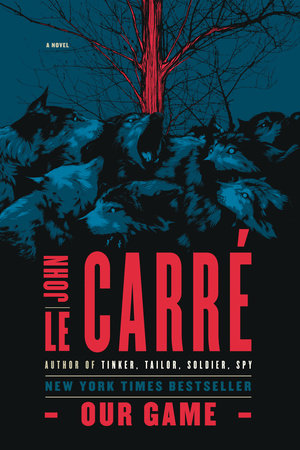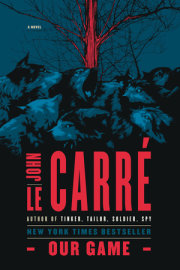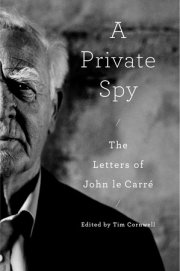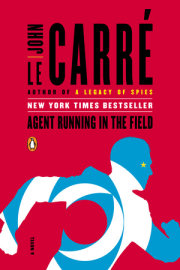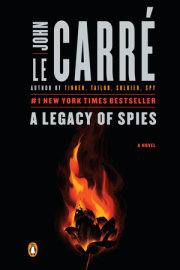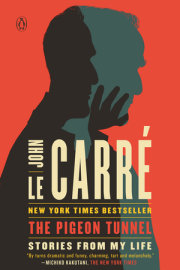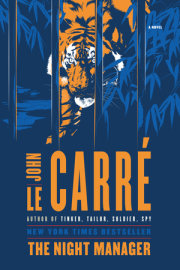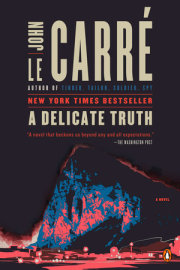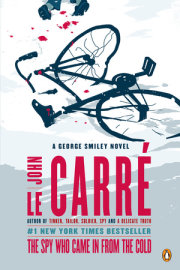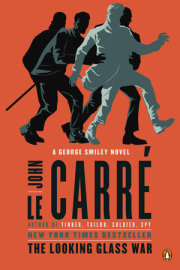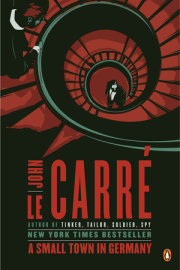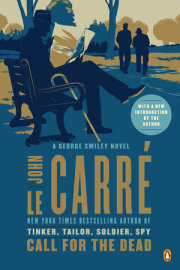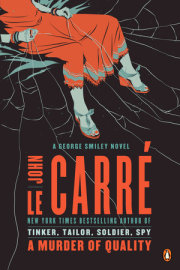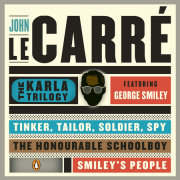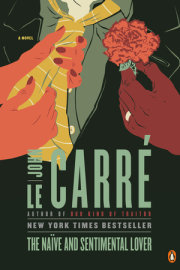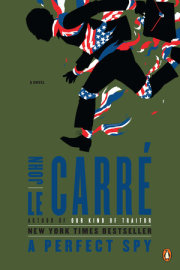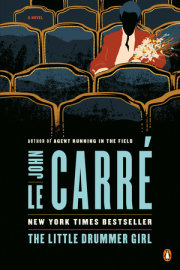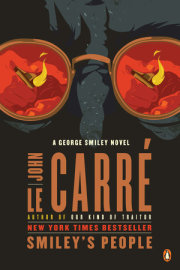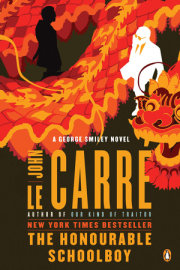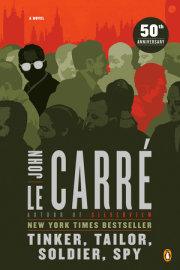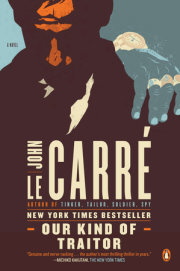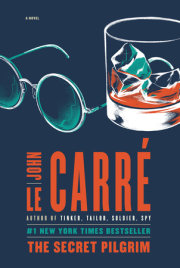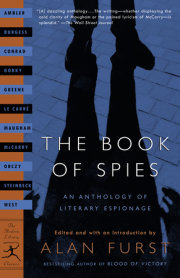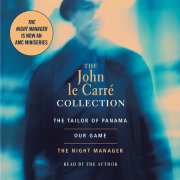Larry went officially missing from the world on the second Monday of October, at ten minutes past eleven, when he failed to deliver his opening lecture of the new academic year.
I am able to set the scene exactly because it was not so very long ago, in the same dreary Bath weather, that I had dragged Larry down to see the wretched place for the first time. To this day I have the most accusing memory of the brutalist slab barracks closing in on him like the walls of his new confinement. And of Larry’s ever youthful back walking reproachfully away from me down the concrete canyon like a man going to his nemesis. If I had had a son, I thought as I stared after him, this was how it would feel to be dumping him at his first boarding school.
“Hey, Timbo,” he whispers over his shoulder, the way Larry can speak to you from miles away.
“Yes, Larry.”
“This is it, is it?”
“This is what?”
“The future. Where it all ends. Leftover life.”
“It’s a new beginning,” I say loyally.
But loyal to whom? To him? To me? To the Office?
“We have to scale down,” I say. “Both of us do.”
The day of his disappearance was by all accounts equally depressing. A cloying mist envelops the hideous grey university campus and breathes a sticky pall over the alloy-framed windows of Larry’s grimy lecture room. Twenty students sit at desks facing the empty lectern, which is of a particularly violent yellow pitch pine, very scratched. The subject of his lecture has been chalked on the blackboard by a mysterious hand, probably a doting pupil’s. Karl Marx in the Supermarket: Revolution and Modern Materialism. There is a bit of laughter. Students are the same everywhere. On the first day of term they will laugh at anything. But gradually they fall quiet and content themselves with smirking at each other, peering at the door, and listening for Larry’s footsteps. Until, having allowed him the full ten minutes’ grace, they self-consciously put away their pens and notebooks and clank along the rocking concrete pavement to the canteen.
Over coffee, the freshers are duly appalled by this first experience of Larry’s unpredictability. This never happened to us at school! How will we catch up? Will we be given notes? Oh, God! But the hardened ones, Larry’s fans, only laugh. That’s Larry for you, they explain happily; next time round he’ll bat on for three hours and you’ll be so hooked you’ll forget lunch. They speculate about what might have kept him: a bumper hangover, or an outrageous love affair, of which they ascribe any number to him, for in his mid-forties Larry is still a lover just to look at: he has the lost-boy appeal of a poet who never grew up.
The university authorities took an equally relaxed view of Larry’s reluctance to appear. Common Room colleagues, not all from the friendliest of motives, had reported the offence within the hour. Nonetheless the administrators waited for another Monday, and another no-show, before mustering the energy to telephone his landlady and, on receiving no satisfaction from her, the Bath police. It was a further six days before the police called on me: a Sunday, if you can believe it, ten o’clock at night. I had spent a wearisome afternoon escorting a coachload of our village elderlies on a trip to Longleat, and a frustrating evening in the winery wrestling with a German grape press, which my late uncle Bob had christened The Sulky Hun. Nevertheless, when I heard their ring my heart leapt while I pretended to myself that it was Larry, hovering on my doorstep with his accusing brown eyes and dependent smile: “Come on, Timbo, fix us a bloody big Scotch, and who gives a damn about women anyway?”
Two men.
It was pelting rain, so they had huddled themselves into the porch while they waited for me to open up. Plain clothes of the deliberately recognisable kind. Parked their car in my drive, a Peugeot 306 diesel, very shiny under the downpour, marked POLICE and fitted out with the usual array of mirrors and aerials. As I peered through the fish-eye, their hatless faces stared back at me like bloated corpses: the elder man coarse and moustached, the younger goatish, with a long, sloped head like a coffin and small, round eyes like bullet holes shot through it.
Wait, I told myself. Add a beat. That’s what being calm is all about. This is your own house, late at night. Only then did I consent to unchain the door to them. Seventeenth-century, iron-bound, and weighs a ton. The night sky restless. A capricious wind snapping at the trees. The crows still shifting and complaining, despite the darkness. During the day we had had a crazy fall of snow. Ghostly grey lines of it lay on the drive.
“Hullo,” I said. “Don’t stand there freezing. Come on in.”
“My entrance lobby is a late addition by my grandfather, a glass-and-mahogany box like a vast elevator that serves as an antechamber to the Great Hall. For a moment, there we stood, all three, under the brass lantern, going neither up nor down while we looked each other over.
“This is Honeybrook Manor, is it, sir?” said the moustache, a smiler. “Only we didn’t seem to see a sign at all.”
“We call it the Vineyard these days,” I said. “What can I do for you?” But if my words were polite, my tone was not. I was speaking the way I speak to trespassers: Excuse me. Can I help you?
“Then you would be Mr. Cranmer, am I correct, sir?” the moustache suggested, still with his smile. Why I say smile, I don’t know, for his expression, though technically benign, was devoid of humour or of semblance of goodwill.
“Yes, I’m Cranmer,” I replied, but preserving the note of question in my voice.
“Mr. Timothy Cranmer? Just routine, sir, if you don’t mind. Not disturbing you, I trust?” His moustache hid a vertical white scar, I guessed a harelip operation. Or perhaps someone had smashed a broken bottle into him, for he had a patchy, reconstructed complexion.
“Routine?” I echoed, in open disbelief. “At this time of night? Don’t tell me my car licence is out of date.”
“No, sir, it’s not about your car licence. We’re enquiring about a Dr. Lawrence Pettifer, of Bath University.”
I allowed myself a chastened pause, then a frown midway between amusement and vexation. “You mean Larry? Oh my Lord. What’s he been up to now?” And when I received no answer but the stare: “Nothing bad, is it, I trust?”
“We’re given to understand you’re an acquaintance of the Doctor’s, not to say close friend. Or isn’t that correct?”
It’s a little too correct, I thought.
“Close?” I repeated, as if the notion of proximity were new to me. “I don’t think I’d go that far.”
As one man, they handed me their coats and watched me while I hung them up, then watched me again while I opened the inner door for them. Most first-time visitors to Honeybrook make a reverent pause at this point while they take in the minstrels’ gallery, the great fireplace, the portraits, and the wagon roof with its armorial bearings. Not the moustache. And not the coffinhead, who, having until now lugubriously observed our exchanges from behind his older colleague’s shoulder, elected to address me in a deprived and snappish monotone:
“We heard you and Pettifer were bosom pals,” he objected. “Winchester College was what we heard, no less. You were schoolmates.”
“There were three years between us. For schoolboys that’s a lifetime.”
“Nonetheless, in public school circles, as we hear, such things make a bond. Plus you were students together at Oxford,” he added accusingly.
“What’s happened to Larry?” I said.
My question drew an insolent silence from both of them. They seemed to be deliberating whether I rated an answer. It fell to the elder man, as their official spokesman, to reply. His technique, I decided, was to play himself in caricature. And in slow motion too.
“Yes, well, your doctor friend has gone a bit missing, to tell you the truth, Mr. Cranmer, sir,” he confessed, in the tones of a reluctant Inspector Plod. “No foul play suspected, not at this stage. However, he’s missing from his lodgings and his place of work. And so far as we can gauge”—how he loved that word; his frown said so—“he’s not written anybody a goodbye billy-doo. Unless he wrote you one, of course. He’s not here, is he, by any chance, sir? Upstairs, sleeping it off, so to speak?”
“Of course not. Don’t be ridiculous.”
His scarred moustache abruptly widened, revealing anger and bad teeth. “Oh? Now, why am I being ridiculous, Mr. Cranmer, sir?”
“I would have told you at once. I’d have said, He’s upstairs. Why should I waste your time, or mine, pretending he isn’t here if he is?”
Copyright © 2015 by John le Carré. All rights reserved. No part of this excerpt may be reproduced or reprinted without permission in writing from the publisher.

